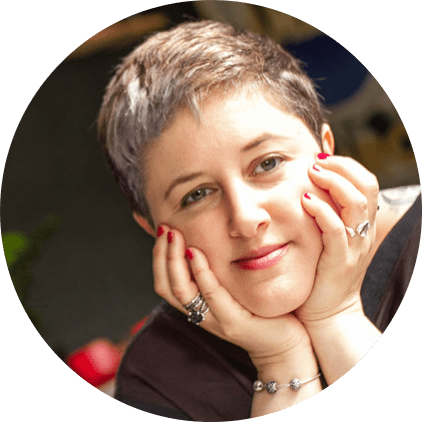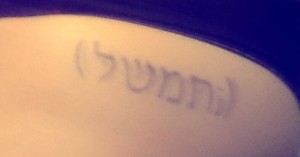When bad things happen to good people the natural, and very normal, response is to scream “it’s not fair!” But it’s what we choose to do about it that counts. Choose life.
When bad things happen to good people
When bad things happen to good people the natural, and very normal, response is to be confused. I mean, we were good, right, so the law of karma says that bad things shouldn’t happen to us. Those that believe in the Law of Attraction (aka the ‘Secret’) might rationalise it as perhaps it’s karma from previous incarnations, or earlier generations, coming back to smack us in the face. They’ll say we perhaps had the ‘wrong energy’ that we were putting out into the universe, and so the universe just gave us more of that energy. This is, frankly, insulting, and why I disagree so often with much of the Law of Attraction philosophy.
When bad things happen to good people the natural, and very normal, response is to look for answers. Which is when we start to question our behaviours and actions, the things we felt we might’ve been able to control, which is when we start to get pulled into the self-blame spiral. This is never going to give us the answers we need, because there was nothing we could have done, we were prey for a predator.
When bad things happen to good people the natural, and very normal, response is to despair. Thoughts such as ‘what’s the point?’ come to the fore. We feel as though nothing we do is ever going to be good enough, because we were good and bad things happen. This is always going to only end in keeping us stuck in a victim-state, feeling like we are being ‘done to’, trapping us in a disempowered spiral of self-hatred and anger at the world for what we feel we cannot change.
In Harold S Kushner’s book, ‘When Bad Things Happen to Good People’, explores this very question. A Rabbi based out in the States, he came to write the book to help others after he had had to come to his own “understanding of God’s role in an unfair and pain-filled world” with the death of his son from an incurable disease. I’m not a religious person, and I don’t believe in a God, although I do think there must be some kind of higher force up there (and I like keeping my options open) but reading this book gave me much solace in understanding that bad things do happen to good people – and it’s what we do about it that counts.
Cause. And Effect.
NLP (Neuro Linguistic Programming) has as its central tenet the concept of responses being either at Cause, or Effect. When we are at Effect we are ‘being done to’; we have abdicated our own responsibility and someone else, or something else, is causing us to feel done to. Phrases like “he made me get angry”, “she snapped and so I snapped back” are clear evidence that we are at Effect. Effect is victim-state.
When we are at Cause, however, that’s when we make our choice as to how to respond. He said something that could have the result of causing anger, but only if I choose to respond with anger. My response is my choice. She said something snappy and I had a choice as to whether I decided to snap back, or respond differently. Cause is empowering.
“It’s not fair” is a victim-state response. “It’s not fair” is a child response. “It’s not fair” is stamping your foot and screaming your lungs out in a toddler’s temper tantrum. “It’s not fair” gets us nowhere.
I’ve been thinking about this a while now. I was raped. Rape was done to me. I was made a victim. But I’ve spoken before [see, Labels] about labelling ourselves and how the labels we choose can be empowering, or not. But it’s more than that. Like Rabbi Kushner says, it’s what we choose to do when bad things happen that define us.
Timshel
And the concept of freewill, of choice, has always been one that’s close to my heart. East of Eden, by John Steinbeck, was a very influential book on my young mind and Cal’s realisation at the end that he wasn’t born bad but had a choice in how he responded stayed with me. For my 40th, I got Timshel (literal meaning, ‘man has a choice’) tattooed on my body. [It’s not a great photo, the angle not so easy to do myself! But it shows the Hebrew word, surrounded by brackets (signifying I approve of my choices), and ends with the semi-colon (signifying I haven’t stopped making choices, my story isn’t over)].
Post Traumatic Growth
In ‘To Hell and Back’ John Marzillier introduces the concept of Post Traumatic Growth. Using the metaphor of the forest fire he writes, “Just as new shoots will grow from the blackened devastation left by a forest fire, so the very destructiveness of trauma opens up the possibility of something positive.” There are many examples of people who have experienced great trauma, and harnessed that experience to do great things. Oprah. Mandela. Malala Yousafzai. To name just three. In fact, see someone who is pushing for a better world, and I bet you find adversity in their backstory. When we choose to be empowered by our experiences, and not flattened by them, then we grow.
Choose Life
I’ve mentioned the phoenix rising from the ashes before [see, After] . We can choose to stay in the ashes, feeling done to, feeling it’s not fair, we were good and bad things happened – but we must acknowledge that is our choice. We can choose not to choose life, and choose something else. Or we can rise above, we can choose empowerment, we can choose to empower others, we can choose to live, and we can choose life. Choose life.
[It’s very possible, I’ve also been influenced in the writing of this blog by the opening credits to both Trainspotting 1 and 2].



0 Comments